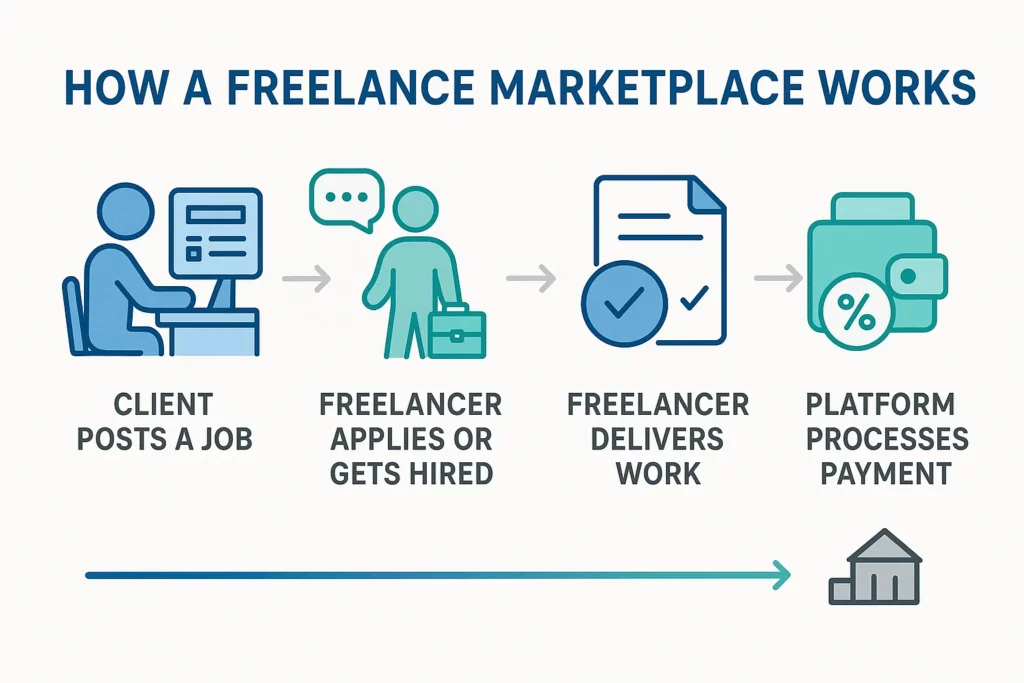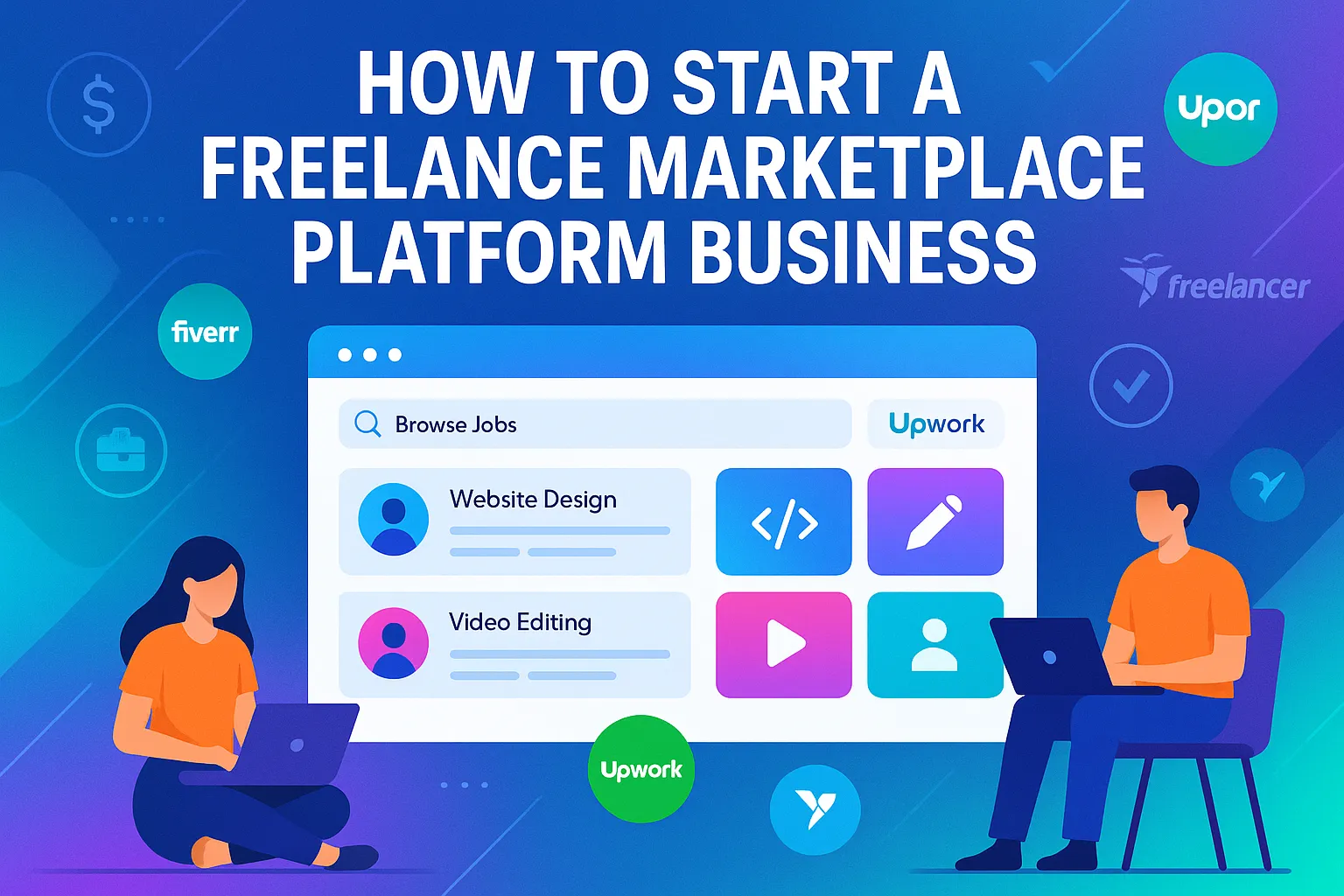Ever stared at your screen thinking, “I wish I owned the next Fiverr or Upwork”? You’re not alone. Thousands of digital dreamers and side-hustlers are ditching the 9–5 and investing in platform-based businesses that don’t sleep. A freelance marketplace isn’t just a cool tech idea—it’s a business in a box, one where the users do the heavy lifting. You just need to give them the playground.
And here’s the kicker: post-pandemic, the gig economy is booming. Remote work is the norm, not a trend. Everyone—from writers and coders to voiceover artists—is scouting for gigs, and platforms are cashing in big time. In fact, marketplaces like Freelancer.com or Toptal have become gold mines in digital real estate. If you’re still on the sidelines, now’s the time to jump in.
But launching your own Upwork-style marketplace isn’t just about slapping together a site and praying people come. You need strategy, tech, and a deep understanding of what makes freelancers and clients stick. That’s where Miracuves comes in—with robust clone solutions that get your freelance platform up and running fast.
What Is a Freelance Marketplace Platform?
At its core, a freelance marketplace is an online hub where clients post tasks and freelancers deliver services. Think Fiverr, Upwork, Guru—they act as the bridge, the matchmaker, and sometimes even the project manager.
These platforms usually take a cut from transactions, but the real value lies in community and trust. From escrow systems to rating engines, everything is geared towards smooth collaboration between strangers across the globe.

Why the Gig Economy Is Exploding Right Now
Let’s talk numbers. According to Statista, over 1.57 billion people are freelancers globally in 2024. That’s nearly half the world’s workforce dabbling or fully diving into gig work. The remote revolution, layoffs, and people chasing flexible lifestyles are fueling this shift.
TechCrunch also reported a surge in VC funding for freelance tools and marketplaces in the past 3 years—clearly, this market is hot property.
Popular Freelance Platforms (And What Makes Them Work)
Let’s take a quick peek at the big guns—and what you can learn from them.
Fiverr
The $5 gig economy king. Fiverr thrives on micro-services and quick turnarounds. Its UI is intuitive, its niche categorization is clever, and the buying process feels like shopping on Amazon. One-tap hiring = conversion magic.
Upwork
More complex and tailored for professionals. Upwork is all about long-term gigs and project depth. The bidding model lets freelancers pitch themselves—great for skilled workers, but not ideal for casuals.
Freelancer
The OG of freelance portals. It’s wide-ranging but a bit clunky. Still, their contests feature (where freelancers submit work and clients pick the best) is a differentiator you might want to steal.
Toptal
Think “elitist” but in a good way. Only the top 3% of freelancers get in, which attracts premium clients. If you want a curated platform, this is the blueprint.
PeoplePerHour
Focuses on hourly billing with strong European roots. Their location-based search is underrated—and a good idea for niche targeting.
Features Your Freelance Marketplace Must Have
Launching a freelance platform? Here’s your must-have feature checklist:
Secure Authentication & Profiles
Users want to feel safe and seen. Email verification, identity checks, profile ratings—it’s trust-building 101.
Job Posting & Bidding
Whether it’s one-click booking like Fiverr or proposal bidding like Upwork, you need clear, structured flows.
Escrow & Payments
Never mess with money. Escrow systems protect both parties and reduce disputes. Add support for wallets, crypto, and global gateways.
Messaging & File Sharing
Freelancing is 80% communication. In-app messaging (with file support) keeps things transparent and trackable.
Review System
Stars matter. Ratings, testimonials, and portfolio integrations help build credibility for both sides.
Monetization Models: How These Platforms Make Money
You’re not running a charity. Here’s how freelance platforms rake in the bucks:
- Commission on Transactions: Classic. Take a cut from each deal (e.g., Fiverr charges 20%).
- Membership Plans: Offer extra perks like profile boosts, bidding credits, or analytics.
- Ad Placements: Let freelancers or clients promote their gigs/projects.
- Freemium Features: Pay to unlock analytics, team accounts, or early job access.
Building vs Cloning: The Smart Choice for Founders
Now, here’s the thing. Building a freelance marketplace from scratch is like baking a 7-layer cake… blindfolded. You’ll burn months (and cash) just on the basics. Worse, by the time you launch, someone else has already snagged your niche.
That’s why smart founders go with app clone solutions. They’re fast, proven, customizable, and way more affordable than building ground-up.
Our clone apps aren’t just copies—they’re launchpads. Whether you’re eyeing the Fiverr model or want a hybrid of Upwork + Toptal, we’ve got scalable options ready to roll.
Conclusion: Time to Make Your Move
You don’t need to reinvent the gig economy. You just need to plug into it smartly. The freelance revolution is only heating up, and those who own the infrastructure (like you’re about to) are set to win big.We empower creators and founders to launch powerful, ready-to-scale app platforms that perform seamlessly and generate revenue from day one. Got a big idea? Let’s bring it to life—together.
FAQs
Q1. What is a freelance marketplace platform?
It’s an online space where clients and freelancers connect to exchange services—think Fiverr, Upwork, and similar platforms.
Q2. How much does it cost to build a freelance platform?
Building a freelance marketplace through Miracuves is highly cost-efficient, starting between $2K and $5K. You’ll get a ready-to-launch solution that can be deployed within 3–6 days, cutting both cost and development time significantly.
Q3. Can I monetize a freelance marketplace easily?
Absolutely! You can earn via commissions, subscriptions, ads, and premium features. Just keep your pricing model simple and value-driven.
Q4. Do I need coding skills to launch this?
Not at all. With a ready-made clone from Miracuves, you get a no-code backend and tech support to manage everything smoothly.
Q5. Is it legal to launch a Fiverr clone?
Yes, as long as you’re not infringing on trademarks or copying protected branding. Miracuves creates legally clean, unique clones.
Q6. Which industries can benefit from niche freelance marketplaces?
All sorts—legal, design, healthcare, AI, tutoring, crypto services—you name it. The riches are in the niches.








